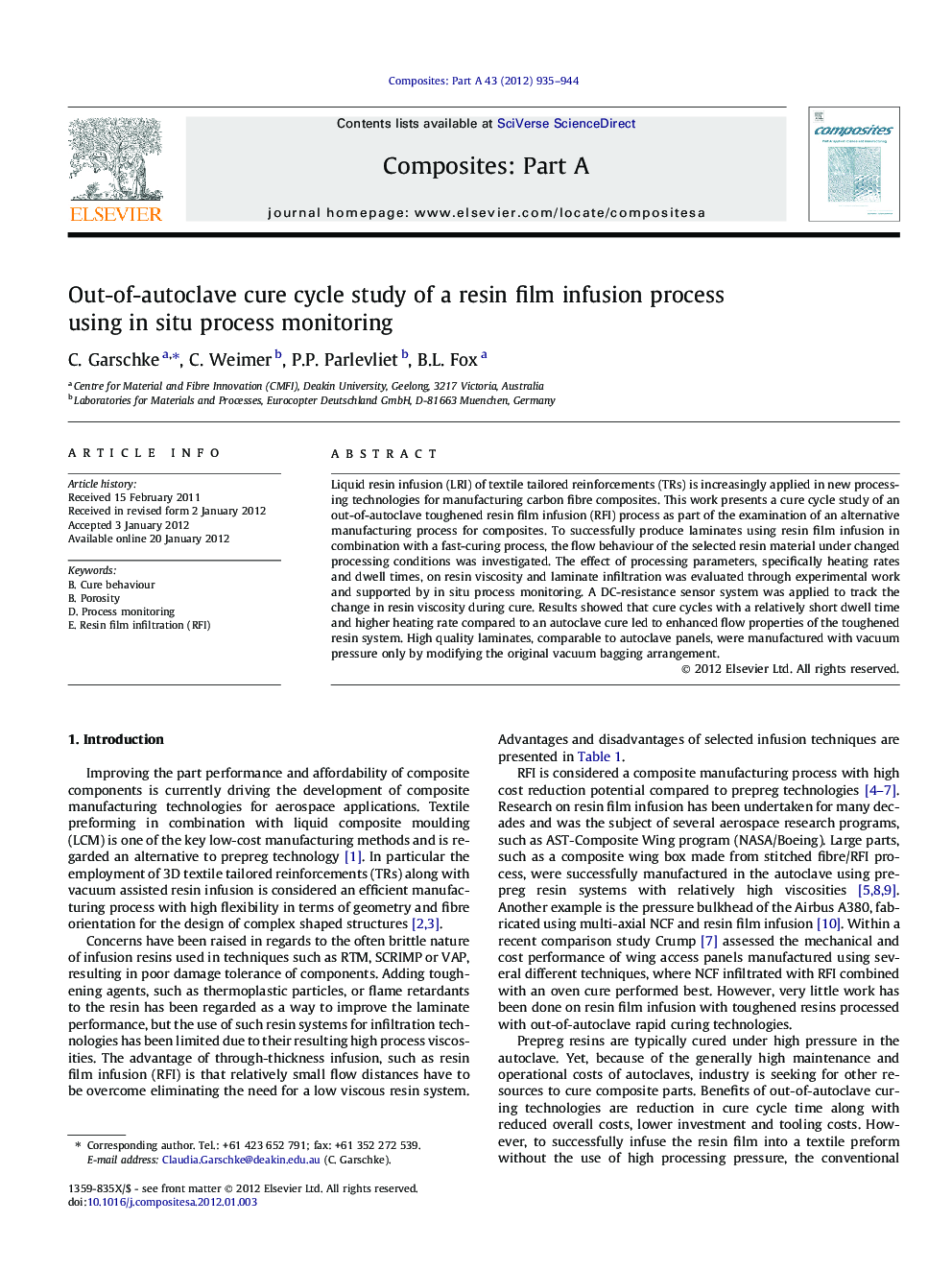| Article ID | Journal | Published Year | Pages | File Type |
|---|---|---|---|---|
| 1466596 | Composites Part A: Applied Science and Manufacturing | 2012 | 10 Pages |
Liquid resin infusion (LRI) of textile tailored reinforcements (TRs) is increasingly applied in new processing technologies for manufacturing carbon fibre composites. This work presents a cure cycle study of an out-of-autoclave toughened resin film infusion (RFI) process as part of the examination of an alternative manufacturing process for composites. To successfully produce laminates using resin film infusion in combination with a fast-curing process, the flow behaviour of the selected resin material under changed processing conditions was investigated. The effect of processing parameters, specifically heating rates and dwell times, on resin viscosity and laminate infiltration was evaluated through experimental work and supported by in situ process monitoring. A DC-resistance sensor system was applied to track the change in resin viscosity during cure. Results showed that cure cycles with a relatively short dwell time and higher heating rate compared to an autoclave cure led to enhanced flow properties of the toughened resin system. High quality laminates, comparable to autoclave panels, were manufactured with vacuum pressure only by modifying the original vacuum bagging arrangement.
